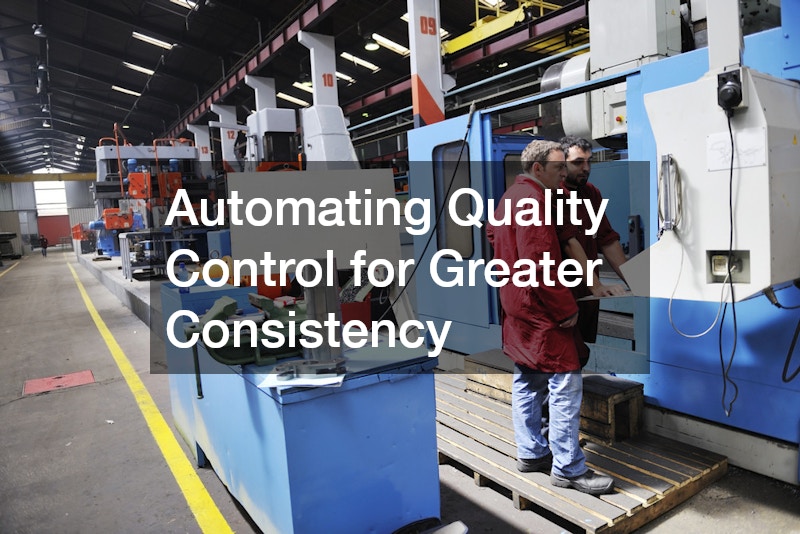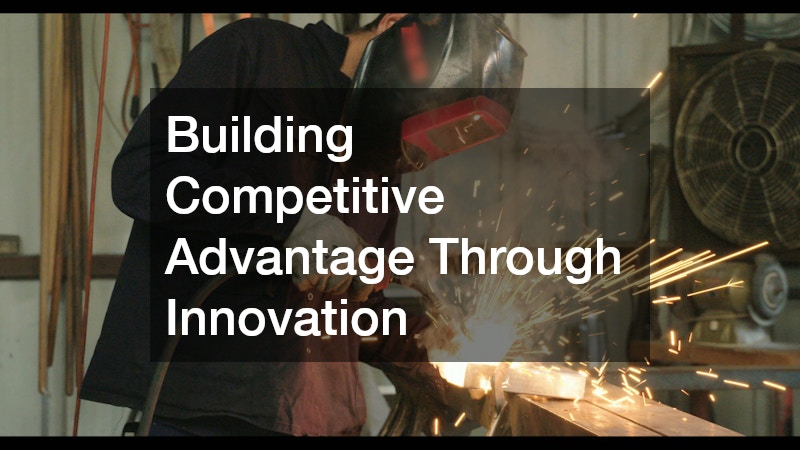Automation has emerged as a cornerstone of efficiency, consistency, and scalability in today’s rapidly evolving industrial landscape. For startups in the manufacturing sector, it is no longer a question of whether automation should be adopted, but rather how to do so effectively and strategically. With technological advancements accelerating across robotics, artificial intelligence, and data analytics, early-stage companies have unprecedented access to tools that were once exclusive to large-scale enterprises.
However, implementing automation in a startup environment presents its own set of challenges and considerations. Founders must navigate initial investment costs, determine the right systems to deploy, and ensure that their workforce is adequately trained to operate new technologies. Despite these hurdles, the long-term benefits of integrating automation into a startup’s infrastructure far outweigh the risks. In manufacturing and fabrication, where precision and repeatability are essential, automation is vital in laying the foundation for sustainable growth and operational excellence.
Embracing Automation to Streamline Startup Operations

Launching a manufacturing startup often involves juggling limited resources, tight timelines, and high-quality expectations. Automation can alleviate many of these pressures by streamlining operations from the outset. Automated systems enhance workflow efficiency by minimizing human error, reducing downtime, and standardizing outputs. These efficiencies are especially critical in the early stages, where every decision can influence long-term success. Adopting automation early also creates a culture of innovation and adaptability, empowering small teams to accomplish more with less and focus on strategic tasks rather than routine operations.
In the context of a grader blade manufacturing company, automation allows for faster material processing, precise shaping, and quality assurance, all while reducing dependency on manual labor. This is especially beneficial when handling tough materials that require consistent pressure and angle control, which machines can replicate flawlessly. By integrating automation into the production line, such companies can meet industry-grade quality standards and scale up production to meet growing demand. This approach reinforces the significance of automation for startups in manufacturing and fabrication, where efficiency and quality are key differentiators.
Enhancing Efficiency in Early-Stage Manufacturing
Efficiency is one of the most pressing priorities for startups, particularly those in the production sector. Automation enhances efficiency by optimizing workflow, synchronizing processes, and minimizing waste. For startups working under tight financial and time constraints, even small gains in efficiency can translate into significant cost savings and competitive advantages. Automation technologies like programmable logic controllers (PLCs), computer-aided manufacturing (CAM), and machine learning algorithms enable rapid adaptations in production strategies, ensuring minimal downtime and maximized output.
For a generator company in its early stages, automation facilitates consistent coil winding, precision in casing fabrication, and systematic assembly procedures. These components demand exactitude to ensure the final product meets performance and safety standards. Automating these tasks reduces the potential for defects and accelerates turnaround times, critical factors for startups seeking to build a solid reputation in a competitive field. In the broader realm of manufacturing and fabrication, such enhanced efficiency through automation sets the stage for long-term operational success and market growth.
Reducing Labor Costs Through Smart Technologies
Labor costs are among the most significant expenses in any manufacturing startup. Automation presents a compelling solution to reduce these costs while maintaining or even improving output quality. By replacing repetitive, time-consuming tasks with automated systems, startups can allocate their human workforce to more strategic roles such as product development, quality control, and customer engagement. This reduces payroll burden and enhances job satisfaction by eliminating tedious work. Innovative technologies such as automated assembly lines, collaborative robots, and AI-powered logistics platforms make these cost savings attainable, even for startups operating on tight budgets.
From an investment analyst‘s perspective, a startup’s ability to reduce labor costs through automation signals strong operational foresight and financial prudence. Investors are more likely to back companies that demonstrate scalable, efficient models, particularly in industries where margins can be tight. For example, a manufacturing startup that automates 40% of its production can achieve faster breakeven and improve its valuation. In sectors like manufacturing and fabrication, where resource optimization is key to staying competitive, automation strengthens the bottom line and enhances the company’s appeal to stakeholders and potential funders.
Automating Quality Control for Greater Consistency

Quality control is essential in any manufacturing process to ensure product reliability and customer satisfaction. Manual inspection methods, while useful, are prone to human error and inconsistency. Automation in quality control introduces precision and repeatability, allowing startups to maintain consistent product standards while reducing waste and rework. Vision systems, sensors, and automated testing equipment can detect defects at various stages of production, flag anomalies in real time, and collect valuable data for process improvement.
Automated quality control systems are particularly valuable for companies involved in drill bushing fabrication, where dimensional accuracy and material integrity are paramount. These bushings often guide high-speed drilling operations, making precision critical for safety and performance. Automation ensures that every unit meets strict tolerances and specifications, reducing the likelihood of failures in end-use applications. This is especially important in manufacturing and fabrication, where minor inconsistencies can compromise structural integrity or operational efficiency. Startups that automate their quality assurance processes gain a competitive edge by consistently delivering high-quality products.
Supporting Scalable Production With Robotics
Scalability is a defining factor in the long-term success of any manufacturing startup. Automation through robotics allows startups to increase their output without a proportional rise in costs or labor. Robotic arms, automated welding machines, and multi-axis CNC systems can be programmed to handle complex tasks with high speed and accuracy, making them ideal for growing production demands. This scalability enables startups to respond quickly to market opportunities, enter new segments, and adjust output in response to fluctuations in demand.
In metal fabrication, robotics can perform intricate cutting, bending, and joining tasks with precision and consistency that is difficult to achieve manually. This boosts throughput and improves overall product quality, reducing waste and downtime. As demand scales, robotic systems can be expanded or reprogrammed to meet new requirements with minimal disruption. In manufacturing and fabrication, the ability to scale efficiently often separates successful startups from those that plateau. Robotics empowers founders to build agile, future-ready production systems from the ground up.
Leveraging Data to Improve Fabrication Workflows
Data-driven decision-making is becoming a standard practice in modern industrial environments, and startups that embrace this mindset are better positioned to succeed. Automation technologies often come bundled with advanced data collection and analytics capabilities. Sensors, machine logs, and process monitoring tools generate real-time data that can be analyzed to uncover inefficiencies, predict maintenance needs, and optimize workflows. This feedback loop improves current operations and provides insight into how to evolve processes over time. For startups, this means making informed decisions leading to smarter growth and fewer costly mistakes.
In sectors such as industrial recycling, automation and data analysis work together to sort materials more accurately, reduce contamination rates, and maximize throughput. For a recycling startup operating in the manufacturing and fabrication ecosystem, tracking how efficiently different materials are processed allows for continuous improvement and cost reduction. For instance, monitoring sensor data can highlight when a conveyor system slows down due to material inconsistencies, prompting immediate adjustments. Leveraging such information helps startups meet regulatory and sustainability targets and build more resilient and responsive operations.
Integrating Advanced Tools in Startup Facilities

Equipping a startup facility with the right tools is fundamental to building a strong production backbone. Automation doesn’t just refer to machines that perform tasks autonomously—it also includes innovative tools that assist human workers, connect with other systems, and streamline workflow. From CNC routers and automated welders to intelligent material handlers and real-time tracking software, modern manufacturing tools reduce errors, shorten cycle times, and promote consistent output. For startups, integrating these tools early on minimizes growing pains and sets the stage for professional-grade results.
When startups collaborate with heavy equipment rental companies, they gain access to high-end automated machinery without the burden of long-term ownership or maintenance costs. This is particularly valuable during the setup phase of manufacturing and fabrication operations, where flexibility and capital efficiency are crucial. Whether it’s renting a robotic welder for a short-term contract or leasing a programmable plasma cutter for custom fabrication, startups can scale their capabilities quickly while maintaining financial agility. This strategic tool integration makes automation more accessible and less risky for emerging businesses.
Using Automation to Improve Safety Standards
Workplace safety is a critical concern in industrial settings, and startups are no exception. Automation significantly reduces safety risks by removing human workers from hazardous environments and repetitive, injury-prone tasks. Robots can handle extreme temperatures, toxic substances, or heavy lifting tasks, while automated systems can monitor air quality, machine integrity, and emergency protocols in real time. This minimizes incidents and helps startups comply with health and safety regulations from the outset.
One key area where automation improves safety is in manufacturing tools. For example, automated tool changers, torque-controlled systems, and laser-guided cutters reduce the margin of error in handling dangerous machinery. In startups focused on manufacturing and fabrication, this translates into fewer workplace injuries and lower insurance costs. Furthermore, automation enables predictive maintenance, helping companies identify and address risks before they cause harm. By prioritizing safety through smart technologies, startups can foster a responsible workplace culture that supports long-term growth and operational excellence.
Accelerating Time to Market With Smart Systems
For manufacturing startups, speed to market can be the difference between capturing opportunity and missing it. Automation allows startups to shorten production cycles by reducing bottlenecks, automating repetitive tasks, and synchronizing workflows. Intelligent systems such as automated scheduling tools, integrated inventory platforms, and digital prototyping technologies enable real-time decision-making and seamless transitions from design to production. As a result, products can be developed, tested, and shipped faster, giving startups a competitive edge in dynamic markets.
In operations involving bulk material handling equipment, automation is crucial in accelerating the transfer, storage, and processing of large volumes of materials. For example, automated conveyors, batching systems, and load sensors can efficiently move and track materials in ways that would take significantly longer with manual processes. For startups in manufacturing and fabrication, this translates to reduced downtime, lower labor input, and faster fulfillment cycles. These improvements accelerate time to market and ensure consistency and quality across every production run.
Building Competitive Advantage Through Innovation

Innovation is the lifeblood of any startup, and automation serves as both a driver and a product of innovative thinking. Implementing automation technologies allows startups to differentiate themselves by offering higher quality, faster delivery, and more customizable solutions than competitors. Furthermore, embracing innovation early fosters a mindset of continuous improvement and experimentation, which can lead to breakthrough products and more efficient business models. In an increasingly saturated manufacturing landscape, startups must leverage every advantage to stand out, and automation is one of the most powerful tools.
One often overlooked element of innovation is workforce development. For instance, offering a welder training class can help startups train technicians to work alongside automated systems rather than be replaced by them. Skilled workers who understand how to operate, maintain, and program automated welding stations are essential in maximizing return on investment. This blend of human and machine intelligence strengthens the foundation of manufacturing and fabrication startups, creating a resilient and agile workforce capable of adapting to future challenges. By simultaneously investing in training and innovation, startups can secure long-term success and market relevance.
The rise of automation has ushered in a new era of possibilities for manufacturing and fabrication startups. From streamlining operations and improving safety to enhancing product quality and accelerating time to market, automation offers transformative benefits that were once only available to large-scale enterprises. These technologies provide startups a unique opportunity to compete on a level playing field by increasing efficiency, reducing costs, and building systems that scale with demand. Embracing automation is no longer optional—it is a strategic necessity for any new business aiming to thrive in a competitive, rapidly evolving industrial landscape.
Moreover, automation doesn’t stand alone; it works best when paired with informed decision-making, skilled labor, and the strategic use of resources. Leveraging the right blend of intelligent systems and human expertise is key to long-term sustainability. As seen throughout this blog, automation touches every aspect of a startup’s operations—from workflows and tools to training and safety. The road ahead is full of promise and potential for those willing to invest in technology and talent.


